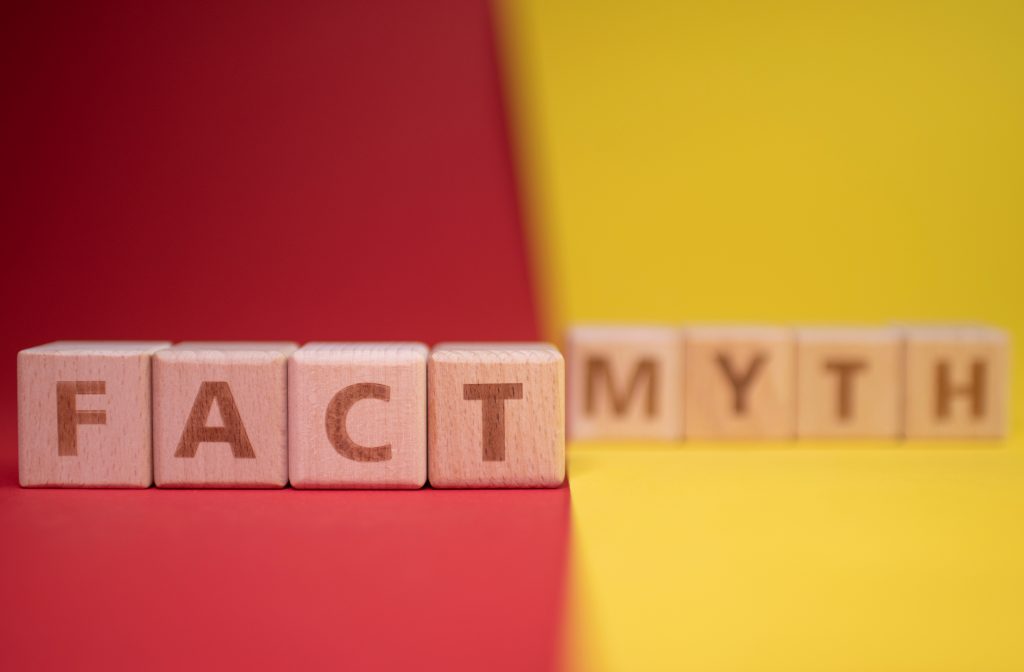Are you intrigued by the idea of skipping dinner to shed those extra pounds? You are not alone! Skipping dinner for weight loss has become a popular trend, but is it really effective? Let’s separate fact from fiction and find out the truth about skipping dinner.
According to modern science, skipping dinner, if done correctly, can actually help with weight loss. Intermittent fasting, which includes skipping dinner, has been the subject of numerous studies highlighting its potential benefits. However, it is important to understand that this approach is not suitable for every lifestyle or health.
Throughout history, skipping dinner has been practised in various ancient traditions that emphasised the importance of mindful eating. Combining ancient wisdom with scientific evidence can provide valuable insights into this weight loss strategy.
In this article, we will explore different perspectives and debunk myths about skipping dinner. Whether you’re curious about the effectiveness or concerned about the health consequences, we’ve got you covered!
Ancient Wisdom and Dinner Skipping
Dinner skipping for weight loss is not a new trend but an age-old practice rooted in ancient traditions and spiritual beliefs. Throughout history, diverse cultures embraced fasting, often including dinner skipping, for various reasons. Let us look at the historical evidence and wisdom of our ancestors to understand their approach to mindful eating and fasting.
Ancient civilizations in India, Greece, Egypt, and China documented fasting practices as a means of physical and spiritual cleansing. Fasting was not solely about weight loss; it was considered a pathway to self-discipline and inner harmony, promoting overall well-being.

In ancient Ayurvedic practices from India, mindful eating and fasting were highly valued. Being conscious of the food consumed and its impact on the body and mind aligns with the concept of dinner skipping.
Greek philosophers like Pythagoras and Plato practised intermittent fasting, recognizing its potential to enhance mental clarity and spiritual growth. They emphasised moderation and balance in daily life.
Similarly, Taoist teachings in China promoted fasting to balance the body’s energies and achieve longevity. Dinner skipping was seen as a way to rest the digestive system during specific periods.
Ancient wisdom viewed dinner skipping holistically, fostering mindfulness, self-awareness, and a deeper connection with oneself. It was more than a weight loss strategy; it encompassed mental and spiritual well-being.
Incorporating this ancient wisdom into our modern understanding of dinner skipping offers valuable insights. By respecting mindful eating and intentional fasting as age-old practices, we can adopt a balanced and healthy approach to weight loss. Drawing inspiration from our ancestors, dinner skipping can become a mindful and purposeful journey towards better health and well-being.
Also Check – 7 Mindless Eating Facts – Adopt the Power of Mindful Nourishment
Modern Science and Dinner Skipping
Modern science has conducted numerous studies on the benefits of skipping dinner for weight control, shedding light on the potential benefits for those who want to lose weight. Let’s examine the real facts about skipping dinner and its effects on our bodies during intermittent fasting.
- Weight Loss- Scientific studies have shown that skipping dinner in combination with a balanced diet can create a calorie deficit that leads to weight loss over time.
- Improved Insulin Sensitivity– Intermittent fasting, including skipping dinner, has been linked to improved insulin sensitivity, which helps regulate blood sugar levels and may reduce the risk of type 2 diabetes.Insulin levels decrease during fasting, allowing the body to draw on stored fat for energy.
- Increased Fat Burning- During fasting, the body taps into its stored fat for energy, which stimulates fat burning and aids weight loss. The body depletes its glycogen stores, leading to the breakdown of fat for energy.After a few hours of fasting, the body enters a state of ketosis where it produces ketones from the breakdown of fat to supply the brain and muscles with energy.
- Hormonal Changes- Skipping dinner triggers hormonal changes, such as an increase in noradrenaline and human growth hormone, which play a role in fat metabolism and muscle preservation.
- Cell Repair and Autophagy- Intermittent fasting supports cellular repair processes and autophagy, a natural cleansing mechanism that removes damaged cells and toxins from the body.
- Appetite Regulation- Contrary to common beliefs, skipping dinner does not increase feelings of hunger. It may even help regulate appetite hormones, leading to better control of food intake.
- Improved brain function- Intermittent fasting has been linked to improved brain function, cognitive performance and protection against neurodegenerative diseases.
It is important to note that individual responses to skipping dinner may vary from individual to individual. It is important to listen to your body and consult a doctor before making any major changes to your diet or lifestyle.
Myths and Common Questions

When it comes to dinner skipping for weight loss, some myths and misconceptions have surfaced. Let us separate fact from fiction and answer the most common questions related to this practice.
Myth- Dinner Skipping Slows Down Metabolism
Fact- Contrary to the myth, skipping dinner does not slow metabolism. In fact, intermittent fasting can boost metabolism by promoting fat burning and supporting hormone regulation.
Myth- Skipping Dinner Causes Muscle Loss
Fact– Properly implemented, dinner skipping, with adequate protein intake and regular exercise does not lead to muscle loss. Instead, it can preserve muscle mass while promoting fat loss.
Myth- Dinner Skipping Leads to Nutrient Deficiency
Fact- As long as you maintain a balanced diet during meal times, skipping dinner is unlikely to lead to nutrient deficiencies. Focusing on nutrient-dense foods is important to meet your nutrient needs.
Myth- Dinner Skipping Makes You Overeat Later
Fact- If you skip dinner, you will not necessarily result in overeating later. Intermittent fasting can help regulate appetite hormones for better control of food intake.
Myth- It’s Necessary to Skip Dinner Every Day
Fact- Intermittent fasting allows flexibility. You can adjust the frequency of skipping dinner to suit your lifestyle and health goals. Some people are successful with occasional fasting, while others prefer a more regular schedule.
Also Check – 20+ Mindful Eating FAQs- Your Guide to a Healthier Relationship with Food
Common Questions
Will I Feel Hungry During Dinner Skipping?
Some people may experience a slight feeling of hunger during the fast, but this often subsides as the body gets used to the new eating pattern. Adequate hydration and eating filling foods during meal times can help control hunger.
Can I Drink Water, Buttermilk (Chaach), Infused Water, or Herbal Teas During Fasting?
Yes, adequate hydration is very important during fasting. You can have water, buttermilk (Chaach) and infused water (e.g. cucumber-infused water, lemon-infused water) without breaking your fast. Herbal teas (e.g. peppermint, chamomile) without added sweeteners are also acceptable options.
Is Dinner Skipping Safe for Everyone?
Although skipping dinner is safe for many people, it is not for everyone, especially people with certain medical conditions or at certain stages of life. People with diabetes, hormonal disorders, breastfeeding mothers, pregnant women or a history of eating disorders should consult a doctor before trying intermittent fasting.
Will Dinner Skipping Impact My Energy Levels?
Dinner skipping may initially affect energy levels as your body gets used to the new eating pattern. However, many people report more energy and mental clarity over time.
Individual responses to dinner skipping can vary, and it is important to listen to your body and make adjustments as needed. If you have concerns or questions about this method, you can consult a doctor for personal support in incorporating skipping dinner into your weight loss.
The Holistic Approach to Dinner Skipping

Combining dinner skipping with mindfulness and self-awareness can elevate your weight loss journey to a whole new level. Mindful eating awareness helps you make healthier choices by paying attention to flavours, textures, and satisfaction levels.
Emotional eating awareness empowers you to cope with emotions without relying on food. Recognizing genuine hunger and fullness through mindfulness supports a balanced approach to eating and weight loss.
Reduced stress and enhanced self-awareness promote better eating habits, positive mindset, and motivation. Embracing intuitive eating allows you to trust your body’s signals for a healthier relationship with food. This holistic approach fosters sustainable lifestyle changes, leading to overall well-being beyond weight loss.
Implementing Dinner Skipping- Practical Tips
Dinner skipping can be effective for weight loss when approached thoughtfully.
- Start with a gradual transition and stay hydrated during fasting periods.
- Practise mindful eating with nutrient-dense foods and avoid overcompensating during eating windows.
- Steer clear of late-night snacking to optimise the benefits of dinner skipping.
- Listen to your body’s signals and make balanced meal plans.
- Include fibre-rich foods to stay satisfied and consistent with your fasting routine.
- Monitor your progress and celebrate successes throughout your weight loss journey.
By blending the holistic approach with practical tips, you’ll find a personalised and mindful path to successful weight management. Remember, your journey is unique, and finding what suits you best is essential for enjoyable and lasting results.
Also Check – 7 Ways to Mindful Cooking- Nourishing the Soul
Safety Considerations and Health Factors
While dinner skipping can be beneficial for some individuals, it may not be suitable for everyone. It’s essential to consider certain medical conditions, hormonal issues, and life stages before attempting this approach. Let’s explore the safety considerations and evidence-based guidelines for incorporating dinner skipping into your lifestyle-
- Medical Conditions- Individuals with certain medical conditions, such as diabetes, hypoglycemia, or eating disorders, should exercise caution with dinner skipping. Fasting can impact blood sugar levels and may not be suitable for those with specific health concerns.
- Hormonal Issues- Hormonal imbalances, such as thyroid disorders or adrenal issues, may be negatively affected by intermittent fasting. Consult with a healthcare professional to determine if dinner skipping aligns with your hormonal health.
- Pregnancy and Breastfeeding- During pregnancy and breastfeeding, adequate nutrition is crucial for both the mother and the baby. Dinner skipping is generally not recommended during these stages, as it may deprive the body of essential nutrients needed for proper growth and development.
- Nutritional Needs– Consider your individual nutritional needs before attempting dinner skipping. Ensure you are consuming enough calories, nutrients, and hydration during eating windows to support your overall health.
- Age and Activity Level- The appropriateness of dinner skipping may vary based on age and activity level. Children, teenagers, and older adults may have different nutritional requirements and may not benefit from this approach.
- Consult a Healthcare Professional- Before starting dinner skipping, consult with a healthcare professional, especially if you have any pre-existing health conditions or concerns. They can provide personalised guidance and ensure it aligns with your individual health needs.
- Slow and Gradual Approach- If you receive approval from a healthcare professional, start with a slow and gradual approach to dinner skipping. Allow your body to adapt to the changes, and listen to how it responds.
- Hydration and Nutrition- During fasting periods, prioritise hydration and consume nutrient-dense foods during eating windows. A balanced diet ensures you’re getting the essential vitamins and minerals necessary for overall well-being.
- Pay Attention to Your Body- Listen to your body’s signals and pay attention to how you feel during dinner skipping. If you experience discomfort, dizziness, or fatigue, consider adjusting your fasting schedule or seeking professional advice.
- Be Mindful of Stress Levels- Stress can impact the effectiveness of dinner skipping and overall health. Focus on stress management techniques, such as mindfulness practices or relaxation exercises.
In our quest for effective weight loss strategies, dinner skipping emerges as a compelling approach. However, it’s vital to recognize that one size doesn’t fit all. While dinner skipping can yield positive results for many, it may not be suitable for everyone, particularly those with specific health conditions or during significant life stages like pregnancy or breastfeeding.
The key to successful weight loss lies in a holistic approach. Combining dinner skipping with mindfulness and self-awareness fosters better eating habits, emotional well-being, and sustainable lifestyle changes. Always prioritise your health and consult a healthcare professional before adopting this practice. Remember, a personalised and mindful journey will lead you to lasting weight management and improved overall well-being.

Leave a Reply